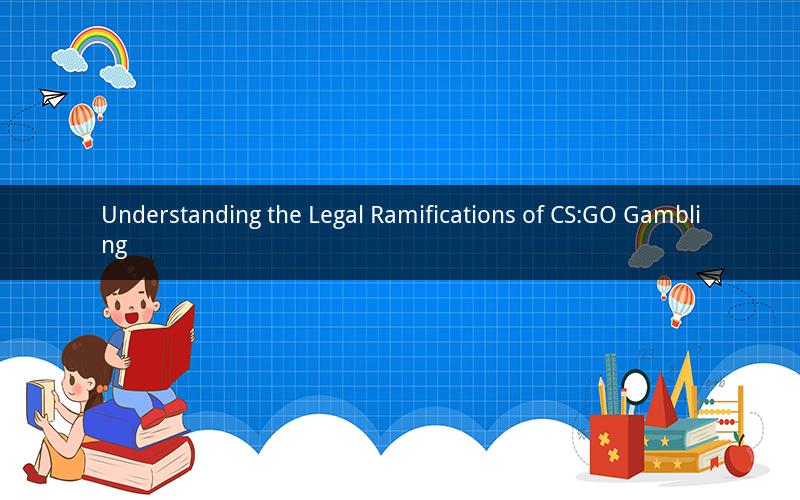
Introduction:
In recent years, the popularity of video gaming has surged, with competitive gaming becoming a multi-billion-dollar industry. One aspect that has gained significant attention is CS:GO gambling, where players bet on the outcomes of matches. However, the legal implications surrounding this activity have been a topic of debate. This article aims to explore the legal consequences of CS:GO gambling and shed light on the regulations and laws in different jurisdictions.
1. Legal Status of CS:GO Gambling
a. Legal in Some Countries
In certain countries, CS:GO gambling is considered legal and regulated. For instance, in the United Kingdom, the Gambling Act 2005 provides a framework for the regulation of gambling activities. The UK Gambling Commission (UKGC) is responsible for licensing and overseeing gambling operators. As long as CS:GO gambling operators obtain the necessary licenses and comply with the regulations, it is legal to operate within the country.
b. Illegal in Others
Contrarily, many countries have strict laws against online gambling, including CS:GO gambling. In the United States, for example, the Unlawful Internet Gambling Enforcement Act (UIGEA) of 2006 restricts financial transactions related to online gambling. This has led to a grey area for CS:GO gambling, with operators and players facing legal challenges. Some states have passed their own laws regulating online gambling, but the overall stance remains uncertain.
2. Risks and Legal Consequences for Gamblers
a. Age Verification
One of the primary legal concerns surrounding CS:GO gambling is age verification. Many countries require that individuals must be of legal age to participate in gambling activities. Failure to comply with age verification regulations can lead to legal repercussions for both gamblers and operators. This includes fines, legal action, or even imprisonment in some cases.
b. Financial Risks
Gambling, by nature, involves financial risks. Players should be aware of the potential legal consequences if they engage in illegal CS:GO gambling. This may include financial penalties, the loss of funds, or even seizure of assets. It is crucial for players to research the legal status of CS:GO gambling in their respective countries to avoid such risks.
c. Addiction and Fraud
Another legal concern is the potential for gambling addiction and fraud. CS:GO gambling can be addictive, leading to financial and personal problems for players. Moreover, illegal gambling websites may engage in fraudulent activities, such as manipulating outcomes or failing to pay out winnings. These issues can have serious legal consequences for both operators and players.
3. Legal Consequences for Operators
a. Licensing and Compliance
Operators of CS:GO gambling websites must obtain the necessary licenses and comply with regulations in countries where the activity is legal. Failure to do so can result in heavy fines, the suspension of operations, or even criminal charges. This includes adhering to age verification, responsible gambling, and fair play regulations.
b. Illegal Activities
In countries where CS:GO gambling is illegal, operators face significant legal consequences if they continue to offer such services. This can include fines, imprisonment, and the closure of their business. It is essential for operators to stay informed about the legal status of gambling in their target markets.
4. International Legal Challenges
a. Jurisdictional Issues
One of the main challenges in regulating CS:GO gambling is the difficulty in enforcing laws across different jurisdictions. As technology allows for global access to gambling websites, it can be challenging for authorities to determine the legal status of a particular activity. This creates a grey area for operators and players, leading to potential legal consequences.
b. International Collaboration
To address the legal challenges of CS:GO gambling, international collaboration between governments and regulatory bodies is crucial. This includes sharing information, coordinating investigations, and establishing agreements to combat illegal gambling activities. Such collaboration can help to protect players and operators while ensuring compliance with applicable laws.
5. Conclusion
The legal consequences of CS:GO gambling vary significantly depending on the jurisdiction. While some countries have embraced regulation, others have taken a stricter stance against the activity. It is crucial for both gamblers and operators to be aware of the legal implications of CS:GO gambling and to comply with the applicable laws. This includes obtaining the necessary licenses, adhering to age verification and responsible gambling regulations, and avoiding fraudulent activities.
Questions and Answers:
1. Is CS:GO gambling legal in all countries?
No, CS:GO gambling is not legal in all countries. The legality of the activity varies depending on the jurisdiction's specific laws and regulations.
2. Can players face legal consequences for participating in CS:GO gambling?
Yes, players can face legal consequences if they participate in illegal CS:GO gambling. This may include fines, the loss of funds, or even imprisonment in some cases.
3. How can players ensure they are engaging in legal CS:GO gambling?
Players can ensure they are engaging in legal CS:GO gambling by researching the legal status of gambling in their respective countries, choosing licensed operators, and verifying their age.
4. What are the main legal challenges faced by CS:GO gambling operators?
The main legal challenges for operators include obtaining necessary licenses, complying with regulations, adhering to age verification and responsible gambling standards, and dealing with jurisdictional issues.
5. How can international collaboration help address the legal challenges of CS:GO gambling?
International collaboration can help address the legal challenges of CS:GO gambling by sharing information, coordinating investigations, and establishing agreements to combat illegal gambling activities across borders.